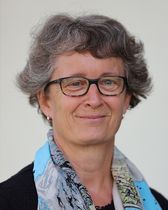Unit | Chronic Disease Epidemiology
The Burden of Non-Communicable Diseases
The fight against infections, including interventions by Swiss TPH, has successfully reduced mortality at a young age. More and more people are surviving into old age and suffering from non-communicable diseases (NCDs). NCDs are often chronic and the burden of disability is increasing. Lifelong, often costly, treatment of NCDs is a poverty risk for individuals, households and health systems. Primary prevention is therefore a priority in NCD control. More than half of the world's population lives in urban areas. This leads to changes in social networks, work environment, environmental exposures and lifestyles that can predispose to the development of NCDs.
Research into the Relation between Exposome and Phenome
The unit conducts observational research to promote mechanistic understanding of the relationship between the exposome (the totality of exposures to which humans are exposed over the life course) and the phenome (the totality of health phenotypes and co-morbidities). In close collaboration with national and international policy makers, the unit applies the collected evidence and expertise of its members to improve health and environmental policy (e.g. LUDOK).
Cohorts and Biobanks to Unterstand NCD and Risk Factors
The unit sets up and conducts observational studies and cohorts of national and international value with associated biobanks (SAPALDIA, SOPHYA, COVCO-Basel, CoDuBu, FarmCoSwiss) covering different age groups as well as geographical, cultural and genetic contexts. External environmental exposures (e.g. air pollution, traffic noise, chemicals) and lifestyle (e.g. physical activity, smoking, alcohol consumption diet) are captured through personalised health and exposome approaches, which also have been used for human biomonitoring. Genetic and genomic biomarkers are investigated for exposure, disease susceptibility and molecular mediation in causal inferences.

Nicole Probst-Hensch
Professor, PhD (Pharmacy and Epidemiology), MPH
Head of Unit
+41612848378
nicole.probst@swisstph.ch
Identification of Risk Factors
Key Projects


SAPALDIA
The Swiss study on Air Pollution And Lung Disease in Adults (SAPALDIA) is the only Swiss-wide chronic disease cohort with associated biobank. It was initiated in 1991 and has since been funded by the SNF, the Federal Offices for the Environment and Public Health, different Lung Leagues and cantons. SAPALDIA is at the center of national and international air pollution (ESCAPE; Exposomics) and respiratory health research (ALEC). The rich risk factor, environmental and health data as well as the genome- and methylome-wide data is used in studies ranging from assessing the role of physical activity, sleep, and transportation noise in cardio-metabolic disease etiology to the evaluation of chronic disease diagnosis and treatment. Read more about SAPALDIA
ALEC - Aging Lungs in European Cohorts
The Horizon 2020 funded project ALEC - Aging Lungs in European Cohorts - integrates data from long-term studies with high quality spirometry data from different countries and age groups. It aims to close the gaps in understanding of poor lung function and COPD and will develop a COPD risk prediction tool. Swiss TPH is participating to ALEC with the SAPALDIA cohort and is leading the work package on genetics and epigenetics. These biomarkers are integrated into Mendelian randomization studies to interrogate the causality of COPD risk factors. Read more about the ALEC study
HBM4EU - The European Human Biomonitoring Initiative
Citizens are exposed to a wide range of chemicals through their diet, environment and use of consumer products. Human biomonitoring data of nationally representative or vulnerable subgroups of the population is essential to guide policy in all sectors dealing with the regulation of chemicals. Swiss TPH coordinates the participation of Switzerland in the Horizon2020 funded European Human Biomonitoring Initiative (HBM4EU). HBM4EU aims to use existing and collect new harmonized HBM data for improved understanding of health risks. Read more about HBM4EU
Memberships in Expert Comittees
Consortium for Ecological Transformation of Healthcare

Nicole Probst-Hensch is a member of the Swiss Consortium for Ecological Transformation of Healthcare in Switzerland (ETHICH), an association that welcomes as members national Swiss organisations that wish to coordinate their actions for a just and ecologically sustainable health system that respects planetary boundaries.
Federal Commission for Air Hygiene

Since 2019 Meltem Kutlar Joss has been a member of the Federal Commission for Air Hygiene (FCAH) that is a committee of experts in the field of air pollution control. As an extra-parliamentary committee of experts, it is appointed by the federal government. It advises the government on scientific and methodological questions relating to air pollution.
Selected Projects
All ProjectsLatest Publications
All PublicationsDoetzer J et al. Methods and exploratory findings of the first Swiss agricultural health cohort FarmCoSwiss. Sci Rep. 2025;15:10690. DOI: 10.1038/s41598-025-94440-0
Jeong A et al. Lung function-associated exposome profile in the era of climate change: pooled analysis of 8 population-based European cohorts within the EXPANSE project. Environ Int. 2025;196:109269. DOI: 10.1016/j.envint.2025.109269
Karakoltzidis A et al. Polycyclic aromatic hydrocarbon (PAH) exposure among European adults: evidence from the HBM4EU aligned studies. Environ Int. 2025;198(in press). DOI: 10.1016/j.envint.2025.109383
Loss G et al. Evaluating the hypertension cascade of care in adults in urban Lao PDR: evidence from the VITERBI Cohort Study. Vasc Health Risk Manag. 2025;21:109-123. DOI: 10.2147/vhrm.S506857
Ndiaye A et al. Associations between long-term air pollution exposure and mortality and cardiovascular morbidity: a comparison of mobility-integrated and residential-only exposure assessment. Environ Int. 2025;198(in press). DOI: 10.1016/j.envint.2025.109387
